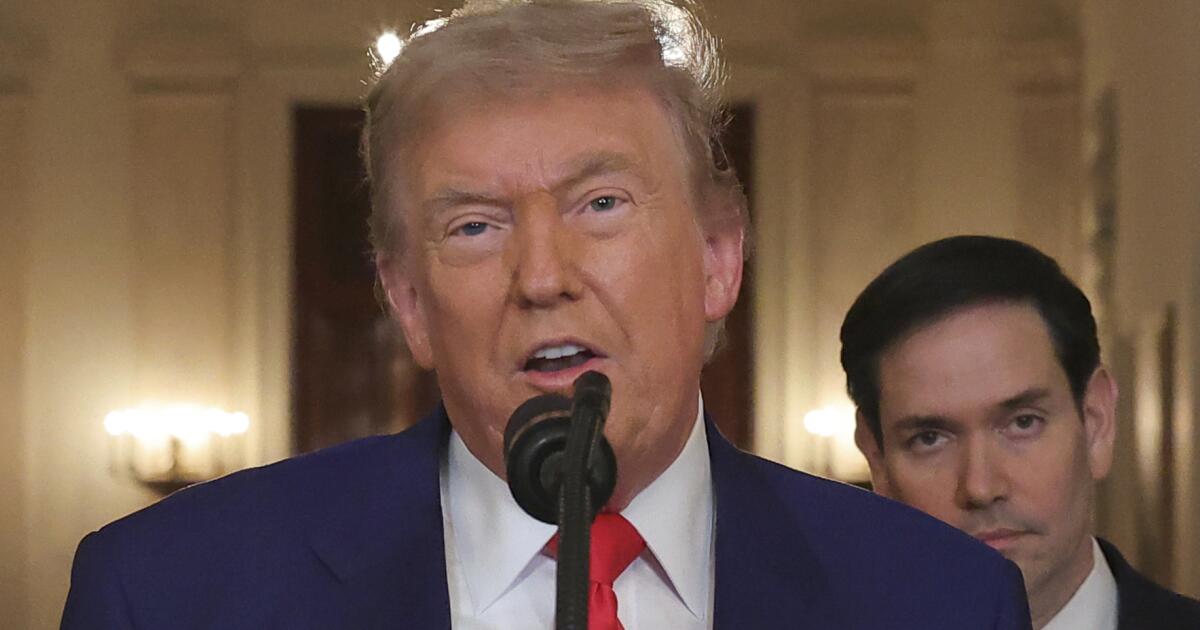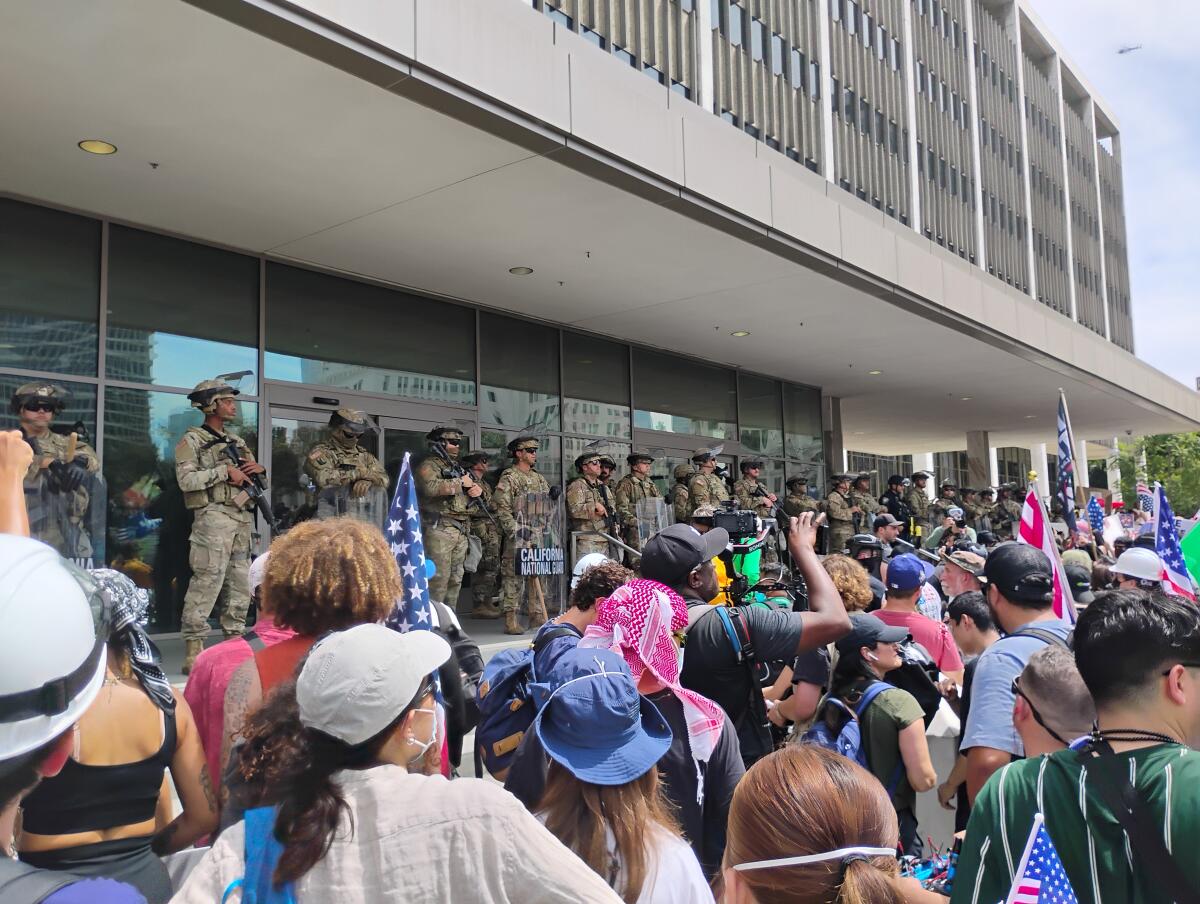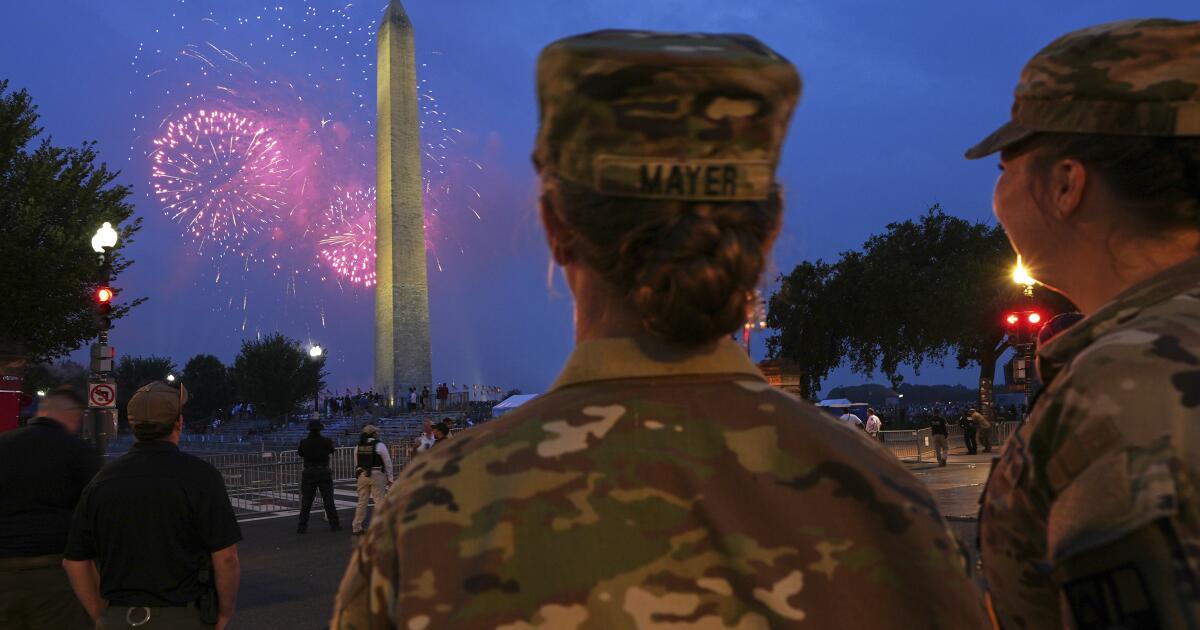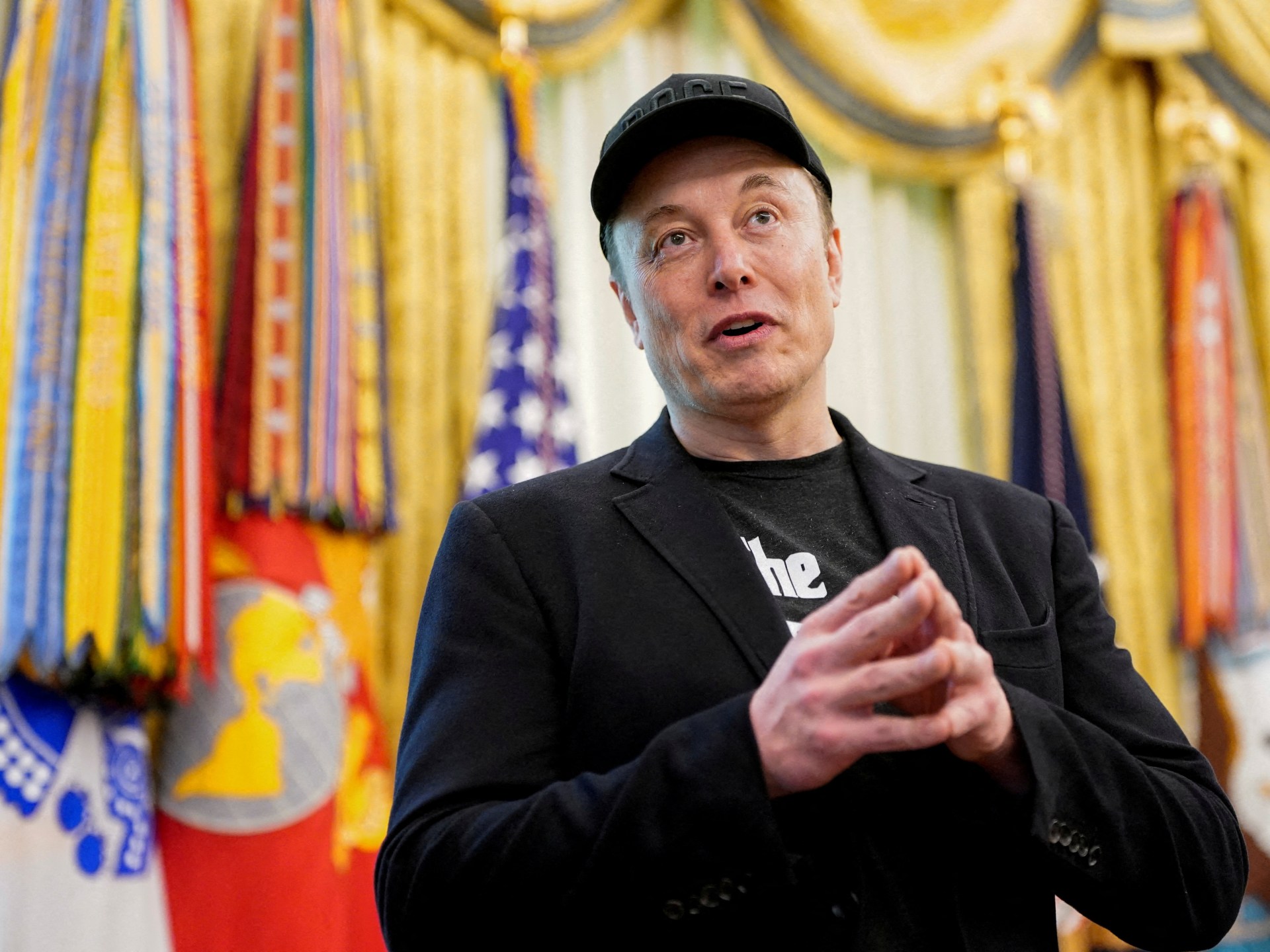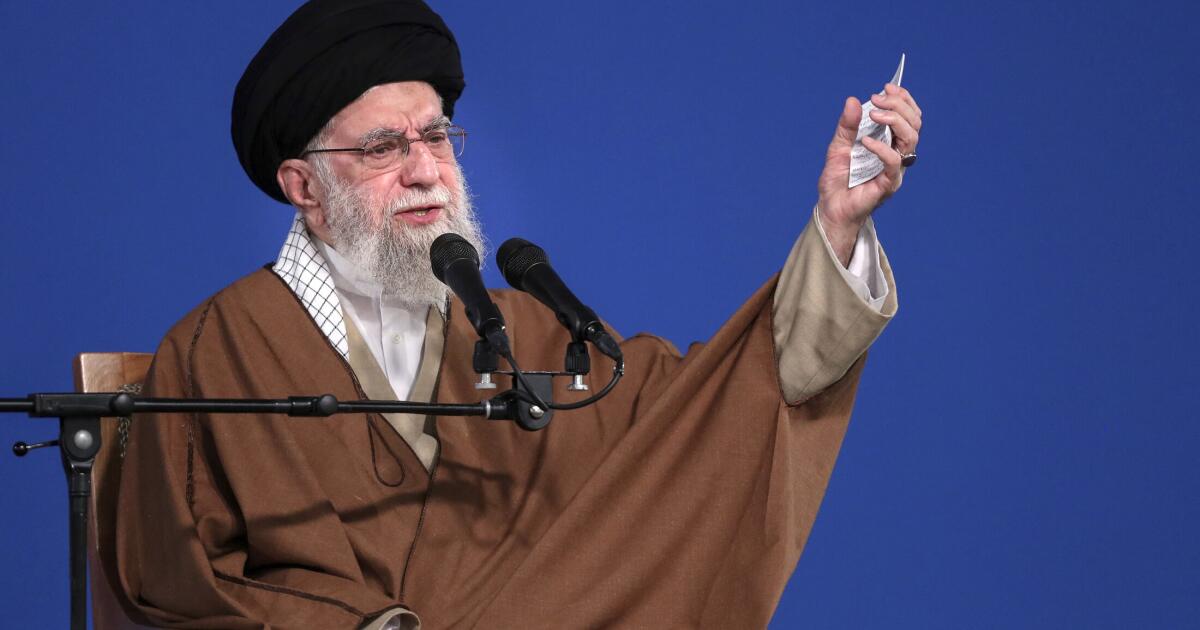Contributor: A plan to take human rights off the table at the State Department
What a difference eight years makes. During President Trump’s first term, then-Sen. Marco Rubio pushed the president to expand his human rights diplomatic agenda. Rubio recognized that promoting human rights abroad is in the national interest. He urged the president to appoint an assistant secretary for the Bureau of Democracy, Human Rights and Labor — commonly known as DRL — after the position was left vacant for nearly two years. He co-sponsored the Women, Peace and Security Act (ensuring that the U.S. includes women in international conflict negotiations), spoke out against the torture of gay men in Chechnya and co-sponsored the Uyghur Forced Labor Prevention Act.
So it is shocking that as secretary of State, Rubio is overseeing the near-total destruction of his department’s human rights and global justice policy shops and programs. Rubio knows this decision, one catastrophe among the many State Department cuts he’s contemplating, will undermine the enforcement of legislation he previously championed. It will also imperil decades of bipartisan foreign policy and leave the world a much more dangerous and unjust place. Congress must use its authorization and appropriation powers to protect this work.
We speak from experience. We represent the Alliance for Diplomacy and Justice, an organization of former State Department senior diplomats mandated to promote human rights and criminal justice globally, and to combat human trafficking. If the proposed DRL “reorganization” proceeds, critical infrastructure and expertise, which took decades and enormous political will to build, will be lost. It would also send a chilling message to the world, and to Americans: The U.S. no longer sees the quests for equality, global justice or human rights as foreign policy imperatives, or as priorities at all.
Rubio’s plan would shutter most of the State Department’s offices devoted to human rights and lay off an estimated 80% of the DRL staff, most of whom are experts in human rights and democracy. In a recent Substack post, he claimed these civil servants had become “left-wing activists [waging] vendettas against ‘anti-woke’ leaders.” Surely he knows they have instead proved themselves committed to serve the U.S. government under whatever administration is elected.
Rubio may claim that he is not eliminating DRL, but by stripping it of all policy functions, limiting it to dispensing minimal humanitarian assistance and undermining its ability to influence policy debates, his plan will be the last nail in the coffin in which the Trump administration buries America’s human rights work.
When difficult foreign policy debates are underway at the highest levels, there will be no U.S. experts at the table who specialize in human rights issues. Yet we know it is crucial that America’s foreign policy decisions balance the often precarious tension between human rights and economic and geopolitical issues.
The destruction of DRL means many important initiatives will cease altogether. As one example, the bureau previously funded a global network of civil society organizations working to reintegrate detained children of Islamic State insurgents in Iraq. Without intervention, these children and their mothers (often victims themselves) would have been indefinitely trapped in refugee camps and left susceptible to radicalization and terrorist recruitment. This lifesaving work — which made Americans safer by disrupting the cycle of anti-American extremism — was done at minimal cost to U.S. taxpayers. Now this meticulously crafted network will probably disintegrate, empowering hostile regimes overnight and imperiling the victims of Islamic extremism.
Per the plan, the few surviving DRL offices would be rebranded along ideological lines. The Office of International Labor Affairs would become the Office of Free Markets and Fair Labor, allegedly to prioritize American workers. But a different message is clear: The State Department is eviscerating efforts to prevent human trafficking, forced labor and union-busting overseas, despite the fact that such practices only make it harder for America’s workers and manufacturers to compete in a global economy.
Trump’s foreign policy perversely twists human rights causes into their regressive opposites. For instance, Rubio plans to cancel the role of special representative for racial equity and justice created by the Biden administration — a long-overdue position given the destabilizing role of racial injustice in countries around the world (including our own). Now the department touts racist narratives about “civilizational allies” and asserts that human rights derive from “western values.”
That assertion is offensive, dangerous and wrong. For starters, the flagship human rights instrument is the U.N.’s Universal Declaration of Human Rights. Labeling human rights “western” only encourages dictators around the world to falsely claim the efforts are a Trojan horse for American imperialism. Such framing may put a target on the backs of activists in repressive regimes where advocating for the most marginalized — LGBTQ+ people for example — can be a death sentence.
The Rubio overhaul of the State Department may not seem as alarming as the administration’s scorched-earth tactics elsewhere, such as the total elimination of the U.S. Agency for International Development. But his plan — and his weak and unsubstantiated justification for it — should raise alarms because foreign policy mirrors domestic policy and vice versa. Indeed, we fear that America’s retreat from human rights and democracy on the global stage is a preview for more repression to come here at home.
Congress will have to decide whether to approve Secretary Rubio’s dismantling of offices that fight for human rights and justice, a plan Sen. Rubio would have strenuously rejected less than a year ago. As the U.S. confronts emboldened adversaries, rising authoritarianism and increasing instability in the Middle East and elsewhere, senators and representatives would do well to remember that nations that promote and protect human rights and the rule of law are more likely to enjoy peace, prosperity and stability — conditions that used to define the U.S. to the rest of the world and that we need now more than ever.
Desirée Cormier Smith is the former State Department special representative for racial equity and justice. Kelly M. Fay Rodríguez is the former special representative for international labor affairs, and Beth Van Schaack the former ambassador for global criminal justice. The full list of founders of the Alliance for Diplomacy and Justice is available at thealliancefordiplomacyandjustice.org.
